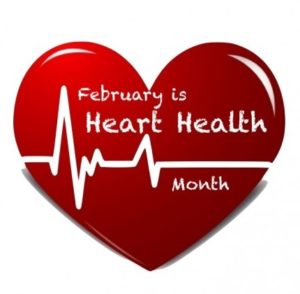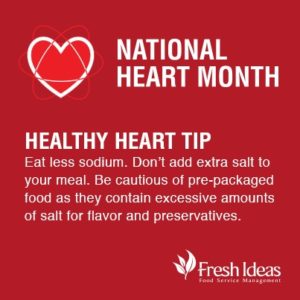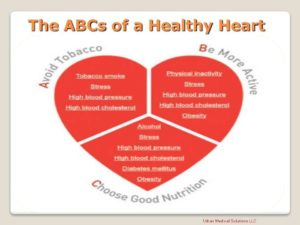Now the Best Tip to a Healthy Heart and giving highier odds to a longer life and more active!!
The perfect gift this Valentine’s Day is the gift of heart health. Along with Valentine’s Day, February marks American Heart Month, a great time to commit to a healthy lifestyle and make small changes that can lead to a lifetime of heart health.
Heart disease is the leading cause of death for men and women.1 While Americans of all backgrounds can be at risk for heart disease, African American men, especially those who live in the southeast region of the United States, are at the highest risk for heart disease.2 Additionally, more than 40 percent of African Americans have high blood pressure, a leading cause of heart disease and stroke.3 That’s why this February during American Heart Month, Million Hearts® is encouraging African American men to take charge of their health and start one new, heart-healthy behavior that can help reduce their risk of heart disease and stroke.
Small Changes Can Make a Big Difference
African American men can make a big difference in their heart health by taking these small steps during the month of February and beyond.
- Schedule a visit with your doctor to talk about heart health. It’s important to schedule regular check-ups even if you think you are not sick. Partner with your doctor and health care team to for improving your heart health, and don’t be afraid to and trust their advice.
- Add exercise to your daily routine. Start off the month by walking 15 minutes, 3 times each week. By mid-month, increase your time to 30 minutes, 3 times each week.
- Increase healthy eating. Cook heart-healthy meals at home at least 3 times each week and make your favorite recipe lower sodium. For example, swap out salt for fresh or dried herbs and spices.
- Take steps to quit smoking. If you currently smoke, quitting can cut your risk for heart disease and stroke. Learn more at CDC’s Smoking and Tobacco Use website .
- Take medication as prescribed. Talk with your doctor about the importance of high blood pressure and cholesterol medications. If you’re having trouble taking your medicines on time or if you’re having side effects, ask your doctor for help.
Strong Men Make Heart Health a Priority
After undergoing triple coronary bypass surgery in 1999, Louisiana native, Clarence Ancar made the decision to make his heart health a priority. Before he had surgery, Clarence knew he had high cholesterol but had dismissed his doctor’s advice on adopting a healthy lifestyle and taking his medication. Clarence’s cardiologist, Dr. Keith C. Ferdinand, taught him that heart disease was not a death sentence and that he could still live a long, healthy life if he committed to making a few changes and respected his heart condition. Working together with his health care team, Clarence developed a plan to start and stay heart healthy.
By setting small, achievable goals and tracking those goals, Clarence made a big and lasting difference in his health. He learned the importance of taking his high blood pressure and cholesterol medications. With the help of a dietitian Dr. Ferdinand referred him to, he started eating less of the fatty, salty, and greasy food and added more fruits and vegetables. He also began walking 2-3 miles each day. After his surgery, Clarence lost a significant amount of weight and kept it off.
Today, Dr. Ferdinand continues to motivate and support Clarence in his heart health journey. By having a strong and trusting relationship with his doctor, Clarence was able to adopt and maintain a healthy lifestyle. Clarence encourages African American men to be strong and commit to making one heart-healthy lifestyle change during American Heart Month.
Ending Line is if your inactive get active and check with your MD your exercise schedule before starting it. Next if your diet is not heart healthy and more buying out in fast food places to diners rather than making your healthy food dishes home than change and start doing so. If you not sure what healthy dishes are than go to your MD and get referred to a Nutritionist if not the MD giving you simple education. Than lastly if on medications than be compliant and take them as ordered. Of course balance rest with exercise. Recommended is to check with your MD first to make sure everything your doing is good for your health. Good Luck!
References
- CDC. NCHS. Deaths, percent of total deaths, and death rates for the 15 leading causes of death in 10-year age groups, by race and sex: United States, 1999-2013 .
- Yang Q, Zhong Y, Ritchey M, et al. Predicted 10-year risk of developing cardiovascular disease at the state level in the U.S.Am J Prev Med . 2014;48(1):58-69. PubMed abstract
- Nwankwo T, Yoon SS, Burt V, Gu Q. Hypertension among adults in the United States: National Health and Nutrition Examination Survey, 2011–2012. NCHS data brief, no 133 . Hyattsville, MD: National Center for Health Statistics. 2013.



